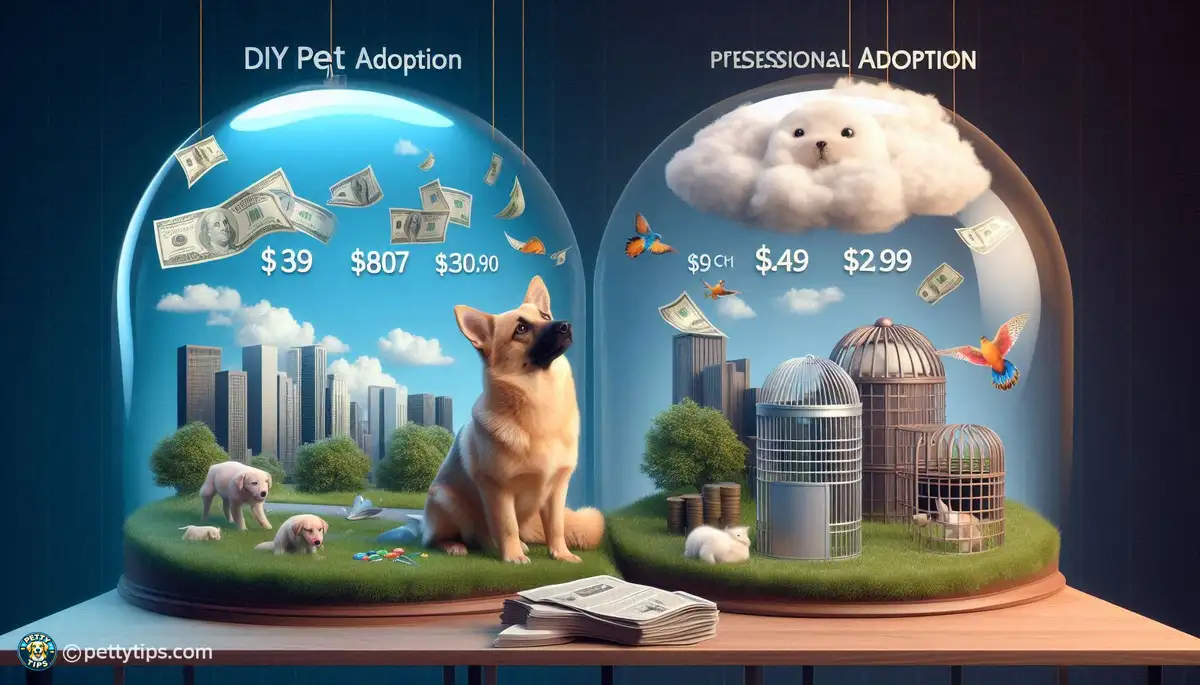
The Financial Considerations of Adopting a Purebred Pet
Esme Alcorn - Oct 26, 2024 - 6 min read


When it comes to adopting a pet, whether you choose to go the DIY route or opt for a professional adoption agency, there are costs involved. With DIY adoption, you might think it's just a matter of visiting a local shelter and bringing home your new furry friend. However, there are still fees to consider. Most shelters charge an adoption fee, which typically covers initial vaccinations, spaying or neutering, and sometimes microchipping. These fees can vary widely depending on the shelter and the type of animal you're adopting.
With professional pet adoption agencies, the initial adoption fees tend to be higher. This is because these agencies often invest more in the care and rehabilitation of animals before they are ready for adoption. The fees usually include the cost of medical exams, vaccinations, spaying or neutering, microchipping, and sometimes even training and behavior assessments. While these fees may seem steep at first glance, they often represent a good value considering the comprehensive care the animals receive.
Once you've adopted your pet, the costs don't end there. Both DIY and professional adoptions come with ongoing expenses that every responsible pet owner should be prepared for. These include food, grooming, veterinary care, and supplies like toys, bedding, and grooming tools. While DIY adoption may seem cheaper upfront because of lower initial adoption fees, the long-term costs can add up. Without the support and resources provided by professional adoption agencies, you may end up spending more on veterinary care and other expenses over time.
One of the main advantages of professional pet adoption agencies is the quality of care they provide to animals. These agencies often have dedicated staff and volunteers who work tirelessly to ensure that every animal receives the medical attention, socialization, and training they need to thrive. This level of care can make a big difference in the long-term health and happiness of your pet. Additionally, many professional adoption agencies offer post-adoption support and resources to help pet owners address any challenges that may arise.
Another benefit of professional adoption agencies is the transparency and accountability they offer. These organizations are typically held to higher standards than individual pet owners when it comes to the care and treatment of animals. They are often subject to regular inspections and audits to ensure that they are following best practices and adhering to animal welfare standards. This can provide peace of mind to prospective pet adopters, knowing that they are adopting from a reputable organization that prioritizes the well-being of animals.
One of the main advantages of DIY adoption is the flexibility and convenience it offers. With DIY adoption, you have the freedom to choose when and where you adopt your pet, as well as the type of animal that best fits your lifestyle and preferences. You also have the opportunity to meet and interact with potential pets in person before making a decision. This can be especially beneficial for families with specific needs or preferences when it comes to adopting a pet.
However, DIY adoption also comes with its own set of risks and challenges. Without the support and guidance of a professional adoption agency, you may not have access to important resources and services that can help ensure a successful adoption. This can include medical care, behavioral support, and post-adoption resources. Additionally, DIY adoptions may involve more uncertainty and potential risks, such as adopting a pet with unknown medical or behavioral issues that may require costly care and attention down the line.
When it comes to adopting a pet, there are pros and cons to both DIY and professional adoption. While DIY adoption may seem more affordable upfront, it's important to consider the long-term costs and potential risks. Professional adoption agencies offer valuable support and resources that can help ensure a successful adoption and provide ongoing care for your pet. Ultimately, the decision to adopt a pet should be based on what's best for you and your furry friend, taking into account your lifestyle, budget, and preferences. By weighing the costs and benefits of both options, you can make an informed decision that leads to a happy and healthy life for you and your pet.